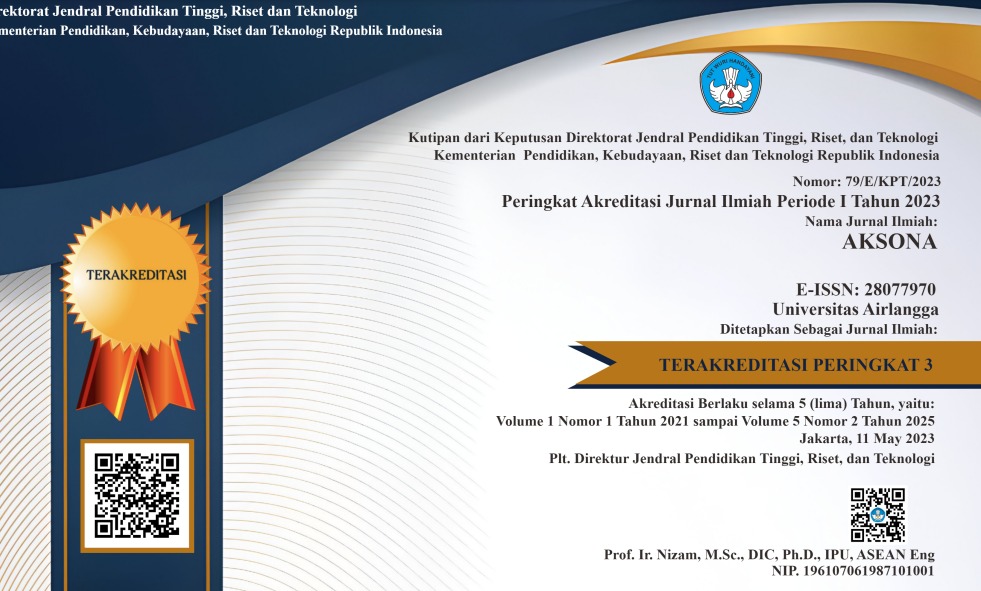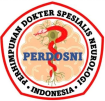Fungal Meningoencephalitis Masquerading as Metabolic Encephalopathy: A Case Report in a 65-Year-Old Geriatric Patient
Downloads
Highlight:
- A geriatric patient may present with subtle or nonspecific symptoms of meningoencephalitis, such as confusion, altered mental status, or lethargy, rather than classic signs like fever and neck stiffness.
- Negative CSF cultures of fungal infection should not delay the initiation of antifungal therapy.
ABSTRACT
Introduction: Infectious pathogens or autoimmune disorders can cause meningoencephalitis. Symptoms include headache, fever, altered mental status, seizure, or neurological deficits. Symptoms frequently manifest atypically in the elderly, which can result in delayed treatment. This case emphasizes how important it is to consider meningoencephalitis in elderly patients with altered consciousness, even without typical signs of it. Case: A 65-year-old female with a history of recurrent hyponatremia and hypokalemia arrived at the emergency room with sudden loss of consciousness, vomiting, and behavioral changes that persisted for a week. The neurological examination and brain CT scan revealed no abnormalities. Severe electrolyte imbalances prompted the initial diagnosis of metabolic encephalopathy. Following progressive electrolyte correction, the patient’s mental condition improved. On the second day, she had generalized seizures and developed right-sided hemiparesis. An MRI of the head with contrast showed thicker dura mater and leptomeningeal enhancement in both hemispheres, indicating meningoencephalitis. Ceftriaxone and dexamethasone were administered intravenously, along with levetiracetam, to treat seizures. The next day, cerebrospinal fluid analysis showed Candida spores, but cultures were negative. Intravenous fluconazole was then added to the therapy. Throughout her two-week stay, the patient’s neurological condition improved consistently. Conclusion:Fungal causes should be considered in cases with unclear meningoencephalitis in the elderly, even if fever or meningeal signs are not present. Although CSF culture continues to be the gold standard for diagnosing fungal CNS infection, negative results should not delay the start of antifungal therapy. Early initiation of targeted antimicrobial therapy is crucial for successful results in these cases.
Griffiths MJ, McGill F, Solomon T. Management of acute meningitis. Clin Med (Northfield Il). 2018; 18(2):164–9. doi: 10.7861/clinmedicine.18-2-164
Scheld WM, Whitley RJ, Marra CM. Infections of the Central Nervous System. 4th ed. Philadelphia; 2014. 687 p. [Book]
Hersi K, Gonzalez F, Kondamudi N. Meningitis [Internet]. StatPearls Publishing. 2023. Available from: https://www.ncbi.nlm.nih.gov/books/NBK459360/
Ghia CJ, Rambhad GS. A systematic literature review on the prevalence and etiology of meningitis among critically ill and hospitalized patients in India. Ther Adv Infect Dis. 2021; 8:204993612110464. doi: 10.1177/20499361211046453
Wunrow HY, Bender RG, Vongpradith A, Sirota SB, Swetschinski LR, Novotney A, et al. Global, regional, and national burden of meningitis and its aetiologies, 1990–2019: a systematic analysis for the Global Burden of Disease Study 2019. Lancet Neurol. 2023; 22(8):685–711. doi: 10.1016/S1474-4422(23)00195-3
Góralska K, Blaszkowska J, Dzikowiec M. Neuroinfections caused by fungi. Infection. 2018; 46(4):443–59. doi : 10.1007/s15010-018-1152-2
Panackal AA, Williamson PR. Fungal Infections of the Central Nervous System. Contin Lifelong Learn Neurol. 2015; 21:1662–78. doi : 10.1212/CON.0000000000000241
Gavito-Higuera J, Mullins CB, Ramos-Duran L, Olivas Chacon CI, Hakim N, Palacios E. Fungal Infections of the Central Nervous System: A Pictorial Review. J Clin Imaging Sci. 2016; 6:24. doi : 10.4103/2156-7514.184244
Nathan CL, Emmert BE, Nelson E, Berger JR. CNS fungal infections: A review. J Neurol Sci. 2021; 422:117325. doi : 10.1016/j.jns.2021.117325
Drummond RA. What fungal CNS infections can teach us about neuroimmunology and CNS-specific immunity. Semin Immunol. 2023; 67:101751. doi : 10.1016/j.smim.2023.101751
Choi C. Bacterial Meningitis in Aging Adults. Clin Infect Dis. 2001; 33(8):1380–5. doi : 10.1086/322688
Pappas PG, Kauffman CA, Andes DR, Clancy CJ, Marr KA, Ostrosky-Zeichner L, et al. Clinical Practice Guideline for the Management of Candidiasis: 2016 Update by the Infectious Diseases Society of America. Clin Infect Dis. 2016; 62(4):e1–50. doi : 10.1093/cid/civ933
Bloch KC, Bailin SS. Update on fungal infections of the central nervous system: emerging pathogens and emerging diagnostics. Curr Opin Infect Dis. 2019; 32(3):277–84. doi : 10.1097/QCO.0000000000000541
Voice RA, Bradley SF, Sangeorzan JA, Kauffman CA. Chronic Candidal Meningitis: An Uncommon Manifestation of Candidiasis. Clin Infect Dis. 1994; 19(1):60–6. doi : 10.1093/clinids/19.1.60
Chen M, Chen C, Yang Q, Zhan R. Candida meningitis in neurosurgical patients: a single-institute study of nine cases over 7 years. Epidemiol Infect. 2020; 148:e148. doi : 10.1017/S0950268820001144
Sánchez–Portocarrero J, Pérez–Cecilia E, Corral O, Romero–Vivas J, Picazo JJ. The central nervous system and infection by Candida species. Diagn Microbiol Infect Dis. 2000; 37(3):169–79. doi : 10.1016/S0732-8893(00)00140-1
Blatzer M, Lanternier F, Latgé J, Beauvais A, Bretagne S, Chrétien F, et al. Fungal Infections of the CNS. In: Infections of the Central Nervous System. Wiley; 2020. p. 419–36. doi : 10.1002/9781119467748.ch44
Khaba MC, Ngale TC, Makhado NA. Fungal infection of the central nervous system: Autopsy analysis of six cases. SAGE Open Med Case Reports. 2022 ; 10:2050313X2211224. doi : 10.1177/2050313X221122419
Turgut M, Challa S, Akhaddar A. Fungal Infections of the Central Nervous System. Handbook of Clinical Neurology. Cham, Switzerland: Springer International Publishing; 2019. doi : 10.1007/978-3-030-06088-6
Wang AY, Machicado JD, Khoury NT, Wootton SH, Salazar L, Hasbun R. Community‐Acquired Meningitis in Older Adults: Clinical Features, Etiology, and Prognostic Factors. J Am Geriatr Soc. 2014; 62(11):2064–70. doi : 10.1111/jgs.13110
Delerme S, Castro S, Viallon A, Boutoille D, Bendahou M, Riou B, et al. Meningitis in elderly patients. Eur J Emerg Med. 2009; 16(5):273–6. doi : 10.1097/MEJ.0b013e3283101866
Copyright (c) 2025 Nita Kurniawati, Ferdinand Erwin

This work is licensed under a Creative Commons Attribution-ShareAlike 4.0 International License.





















